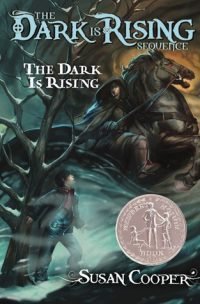Synopsis:
Will Stanton, seventh son of a seventh son is turning eleven and this birthday marks the beginning of his awakening as the last of the Old Ones. The Dark is Rising tells how Will, met by Merriman Lyon, comes to power in the modern world and must accumulate the six “signs” to help fight the rising Dark.
Pros:
- This is a basic story about Good versus Evil and how everyone must at some point make a stand for one or the others.
- The pros in this book is stunning example where art and popular stories merge into one well done novel. Susan Cooper is hitting her stride after book one and doesn’t seem to look back.
- This was one of the first fantasy novels to break into the Newbery Awards, which was no small feat back when it was originally written.
- The story is well paced and full of suspense and creepy backdrops, but that might fall under the Con category.
Cons:
- I really can’t think of any, but if you have a problem Arthur tales and the legends of Cornwall England, this may not be the book for your reader.
- Like in the review for Book One of the series, I don’t find this story antithetical to anyone’s beliefs unless you’re an atheist. Since this is only fiction, I can’t imagine anyone taking a story so literally that it would cause them problems.
Final Word:
I cannot say enough good about this novel. This was one of two novels responsible for turning me into a reader.If you have any qualms as an adult, I recommend you read it first before you turn it over to your young reader.



 Synopsis
Synopsis
